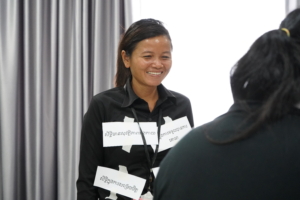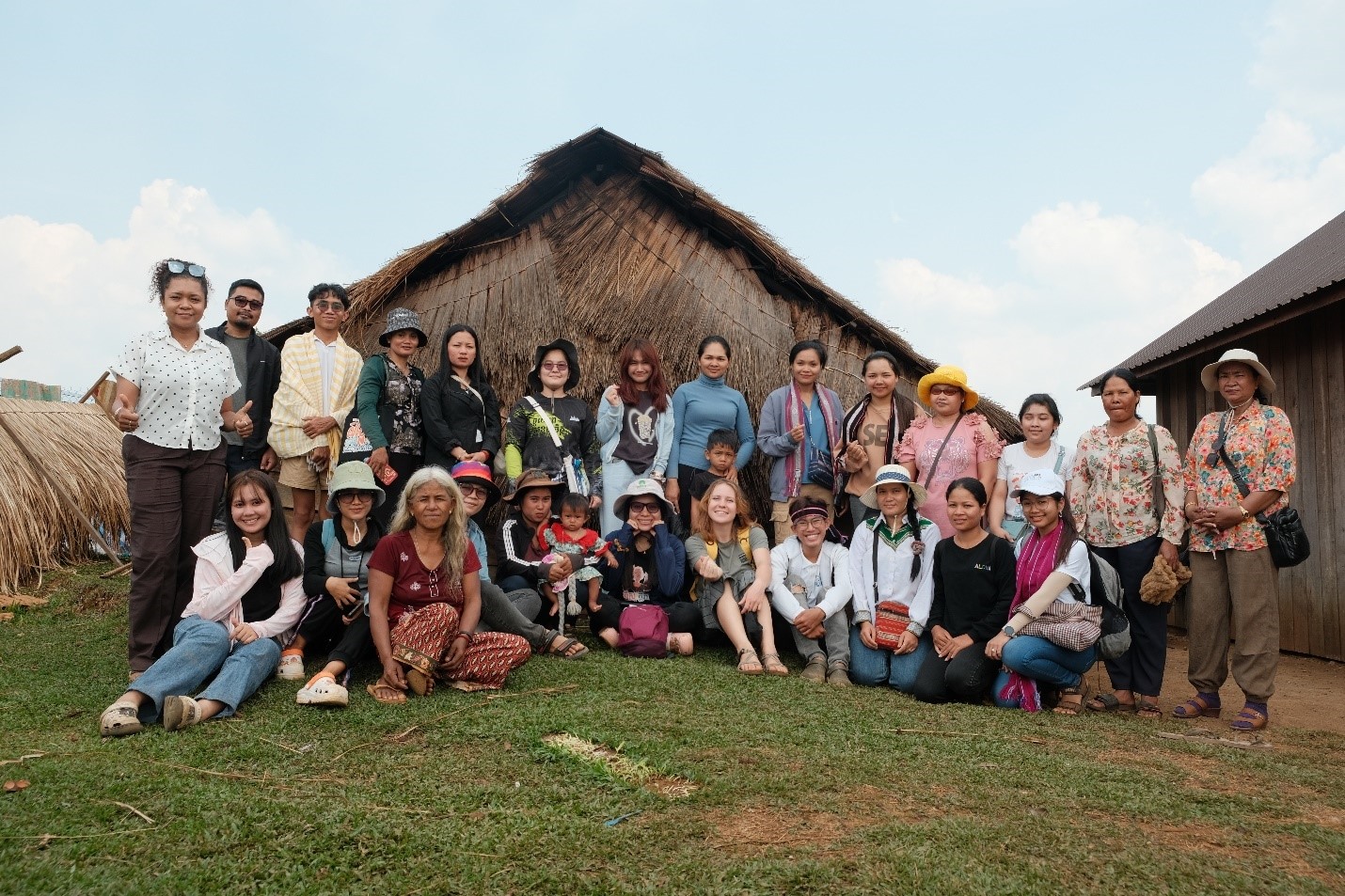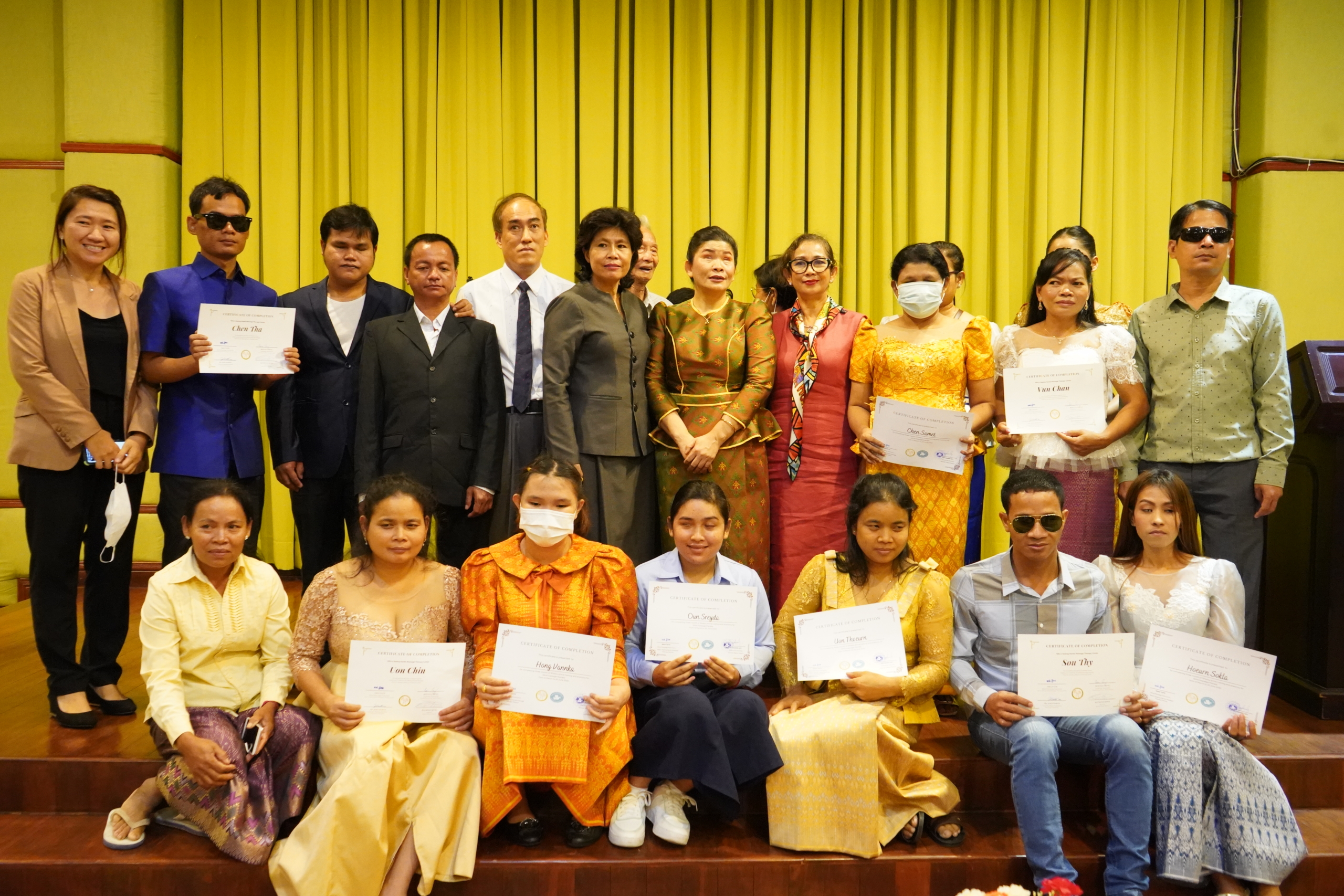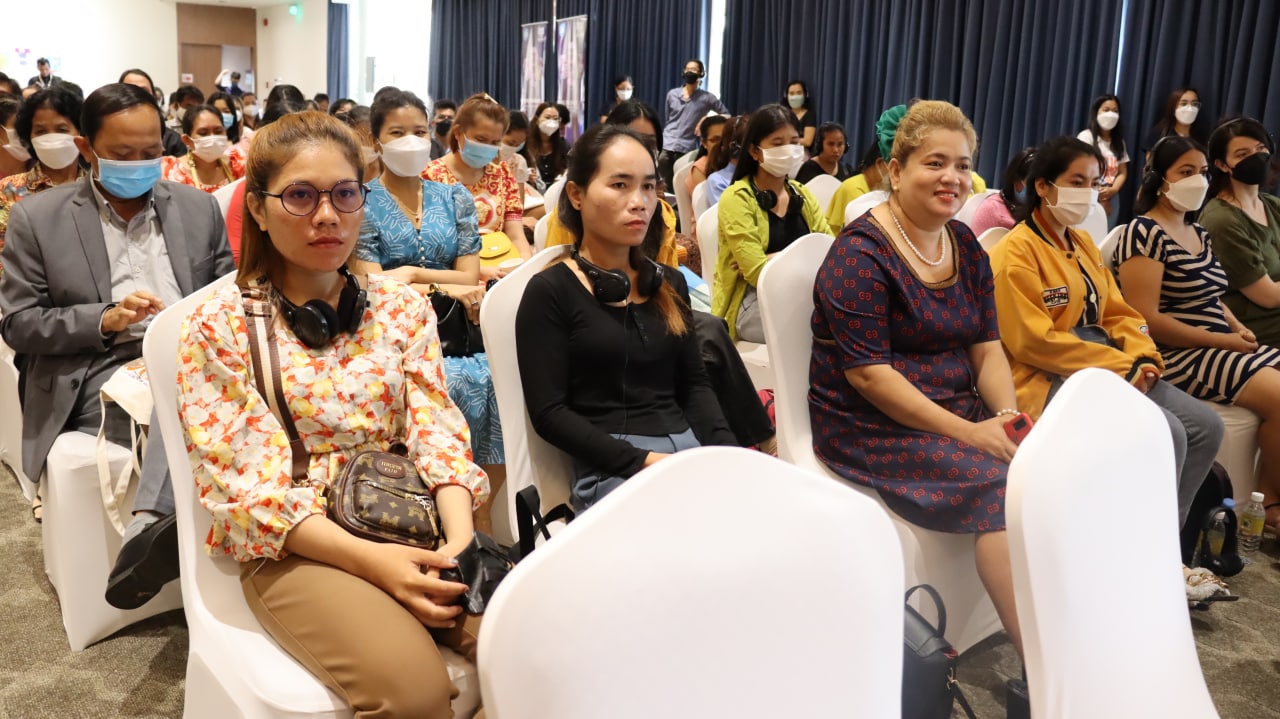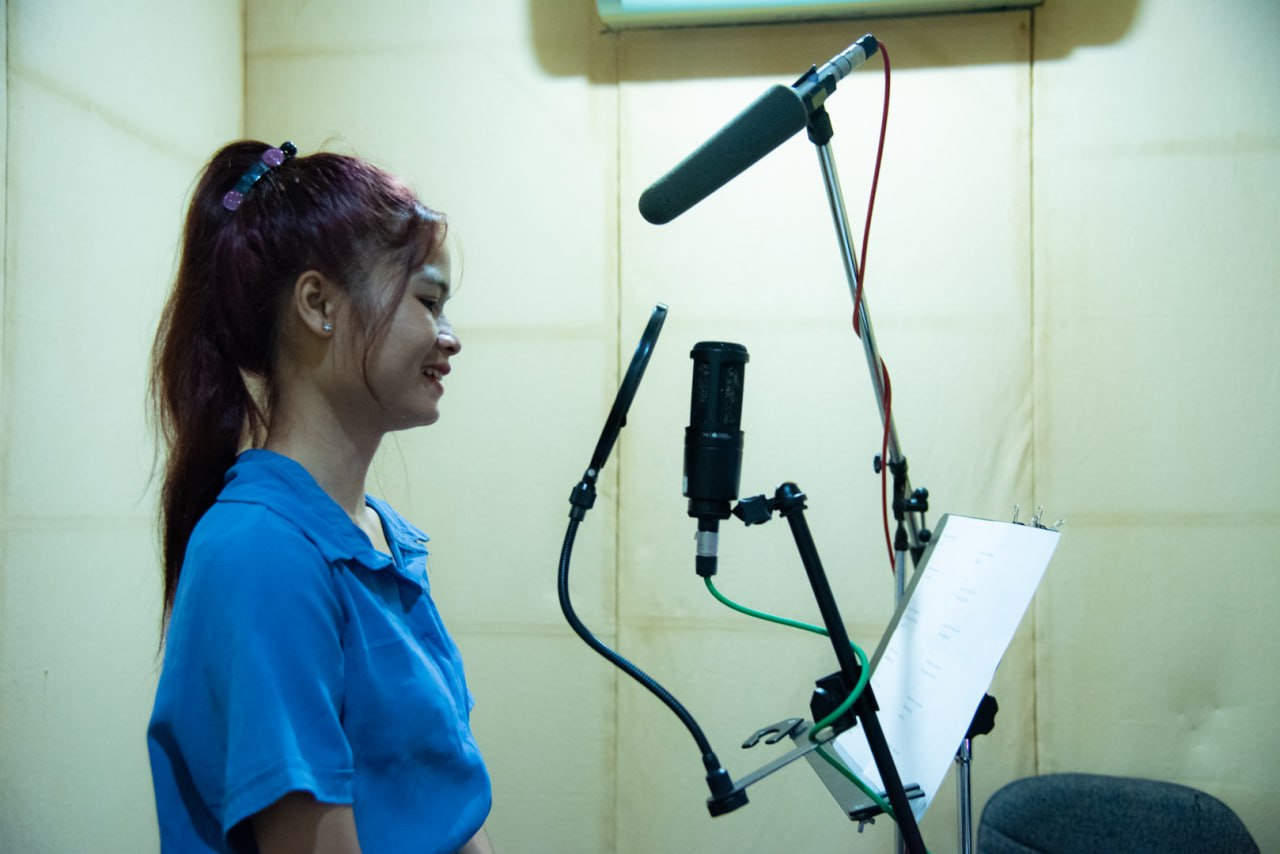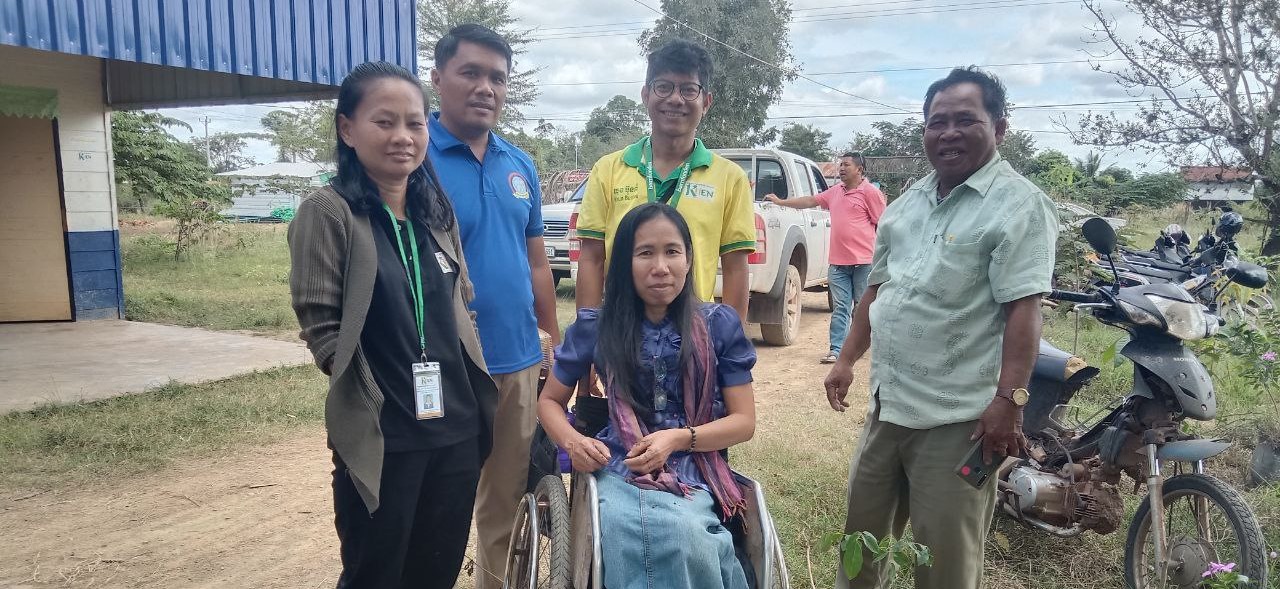Yav Thip’s Story of Change
by Sophet Suy, Program Officer, Women Peace Makers
This story of change was gathered by Women Peace Makers, an Influencing grantee partner whose project aims to change the public narrative of women in Cambodia facing multiple exclusions. They also target to influence relevant policies and enter discussions both at the local and national levels through mobilisation and skills-building of the focus rightsholder groups (indigenous women, women who are blind, ethnic & cultural minorities, and the LGBTI community).
Growing up as an indigenous Kouy woman from Banteay Meanchey province, Ms. Yav Thip was passionate about building her distinctiveness to involve herself in society and make her case known. However, due to low education and financial burdens, she pushes herself to face the societal gaps and fight for her dream and passion.
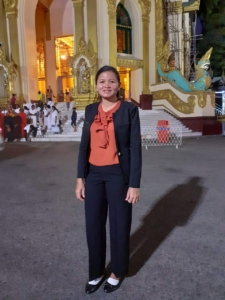
Ms. Yav Thip grew up in a traditional family and mindset with eight siblings. Since she is the youngest child in the family, they could not support her to get an education. As an indigenous Kouy woman, she lived in a community where she was bullied because of the
way she talked, the way she dressed, and the way she believed. Since she was young, she often got negative comments about how she looked; people thought she did not meet their beauty standards. All those things made her become a person who didn’t believe in herself, had low self-esteem, and no confidence to talk and show herself in public.
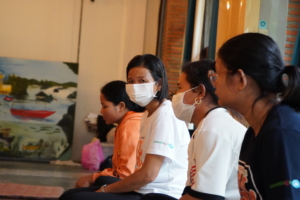
She didn’t want to go anywhere alone. Also, her family does not support her, so she becomes more traumatized by the society around her. She said, “I was so scared of talking to people around as they always bully and do not accept who I am, often people called me a beggar because of the way I am dressing up.”
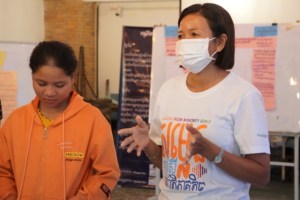
Ms. Yav Thip married in 2011 and recently lives with her husband and one daughter. As a 42 years old woman, she handles all the housework and takes care of the kid alone. In addition, she loves volunteer work (especially social work), so she is a village volunteer who helps to report on women’s cases. However, her husband does not support her in volunteering, as it is no income. Recently, her family has made a living by farming rotation, cultivating rice, harvesting forest and non-timber forest products, fishing, animal husbandry, and so on.
Furthermore, her community also suffers from the loss of land, forests, and natural resources caused by several development projects such as economic land concessions, mining, and
hydropower. No prior-informed consent, consultations with local indigenous communities, and environmental impact assessments were conducted. On the other hand, there are cases of outsiders illegally encroaching on forests and privatizing land. Before attending the training and participating in the activities of Our Turn project, she was a person who had a hard time deciding to go out and get involved with social movements and improve herself because she grew up in a society that did not motivate women to study and go out. She felt that she was not good enough to engage in social work. She said:
“People do not value me because I was just only finished grade 3 and don’t know everything, I am less educated, and they don’t want me to involve with them.’’
After participating in this program, she has gained new knowledge to develop herself, especially since she knows she is not alone. More indigenous people face the same issues, and more minorities g well. After learning about this by participating in Our Turn, Ms. Yav Thip gains more confidence; she dares to go out alone and talk, sharing with a group of people. She started to understand her identity and value who she is. She began to share her problems with other communities and exchange ideas with relevant stakeholders to seek solutions. In connection with another group, and the lesson was conducted, she has been able to know herself better and the people around her by sharing and learning.
Build more connections with the group and surround herself with inspirational speeches. On the other hand, back to her family and husband, she said,” After all the challenges, they started to understand me and accept all my volunteer work, and encouraged me to join the social activity to improve myself.” She was so happy to reach her goal and understand her strength, and she will keep this positive energy onward. During the International World’s Indigenous Peoples Day, celebrated at Sunway Hotel, Phnom Penh, Cambodia August 09, 2022, Ms. Yav Thip had a chance to stand up and raise her voice about indigenous women’s issues and her community in front of many stakeholders, the Representative of the Ministry of Women’s Affairs, the Ministry of Rural Development, also the Deputy Governor of the provincial, and any other Indigenous Elder Representative and non-government organization. On behalf of the indigenous community, she firmly believes that the Royal Government of Cambodia, civil society organizations, and the private sector will pay attention and contribute to solving the problems faced by the indigenous communities. As an indigenous community representative, she will continue to work hard to educate the next generation in building solidarity, preserving traditional culture and identity, protecting and sustaining natural resources, and encouraging indigenous peoples to develop a harmonious community and society.
Ms. Sar Sineth, a Representative of the Ministry of Women’s Affairs stated that it does require participation from all stakeholders in solving violence against women. The Ministry of Women’s Affairs has a specific task force to work on domestic violence to assist victims through the CWCC mechanism at the provincial and district levels. There is also a multi-sectoral response team on gender-based violence composed of relevant departments, such as the Department of Social Affairs, the Department of Health, the Police Commissariat, the Department of Women’s Affairs, and the Deputy Provincial Governor, to help solve problems and help women victims of violence. Currently, the ministry is piloting four integrated services in four provinces set up at provincial hospitals to provide services to women victims of domestic and sexual violence. The main activities of the Ministry of Women’s Affairs include strengthening the capacity to provide counseling and legal services to women and girls in Cambodia, including indigenous peoples, and paying more attention to them.
Ms. Yav Thip will continue working as an Indigenous Elder Representative and be a voice for her community, especially Indigenous women and girls. She is using her confidence and potential to bring up the issue, influencing her to make a positive change in the future.
‘’Thankfully for being not discriminate indigenous people, please end any form of violence against indigenous women and girls.’’
